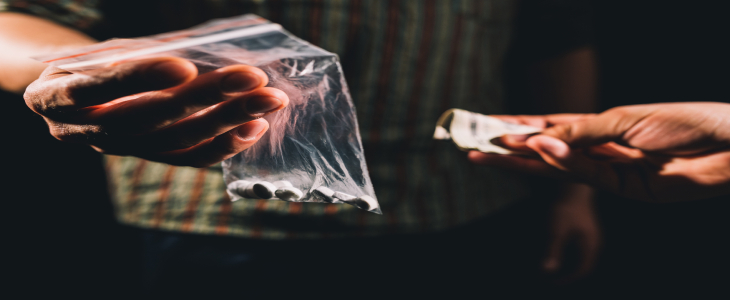Texas prosecutors take drug distribution or distribution charges seriously, and those convicted of drug trafficking (also known as drug distribution) face significant penalties, including jail time and large fines. Prosecutors do not have to prove that a suspect intended to sell drugs for them to pursue a drug distribution charge. Law enforcement may pursue drug distribution charges against someone based on the amount of drugs allegedly discovered in their possession.
Charged With Drug Trafficking? You Need a Skilled Lawyer
Have you been accused of or arrested for drug distribution in Texas? If so, now is the best time to contact Ceja Law Firm PLLC. Our Houston criminal defense lawyers have successfully defended many individuals facing drug offenses, including drug distribution. When you work with our team, you can be sure that we will carefully examine the evidence against you and negotiate strongly to reduce or dismiss charges. Contact us today to schedule your initial consultation with one of our drug distribution lawyers.
What Constitutes Drug Distribution in Texas?
Drug distribution refers to drug traffickers who possess large quantities of controlled substances. The active drug distribution can range from dealing with controlled substances in a nightclub, back alley, or school. However, drug distribution isn’t limited to giving another person a controlled substance in exchange for money. Drug distribution could also mean sharing your controlled substance with another person, even if it’s a friend or family member.
You don’t have to deliver a controlled substance with the expectation of money in return. You simply have to deliver a controlled substance to another person. Suppose you decide to share some of your marijuana from your private stash with your roommate. By doing so, you are considered a drug distributor, even though you are not a drug dealer.
The Penalties for Drug Trafficking in Houston
The Texas Controlled Substances Act sets forth the penalties for drug distribution charges. The penalties for drug distribution depend on several factors, including the amount and type of drugs involved. In Texas, illegal drugs are categorized into different groups based on their addictiveness and lethality. Group 1 controlled substances are deemed to be the most dangerous. They carry the most significant penalties. Examples of group 1 drugs include:
- Opiates
- Ketobemidone
- Methanol
- Heroin
- Cocaine
- Oxycodon
- Morphine
- Methamphetamine
- Gamma hydroxybutyric acid (GBH)
When a person knowingly manufactures, delivers, or possesses more than 400 grams of a group 1 controlled substance, they will receive a minimum jail sentence of 15 years and a maximum life sentence in prison. The defendant will also be fined up to $250,000.
The penalties for drug distribution decrease as the group number increases. For example, a defendant charged with drug distribution less than 28 grams of a group 4 substance faces a state jail sentence between six months and two years. Under Texas law, sentencing enhancements can increase the punishment you receive, mainly when the alleged crime involves someone else’s injury or death or endangers a child.
Drug Distribution of Marijuana in Houston
Despite the trend of states legalizing recreational marijuana, marijuana is still considered an illegal substance in Texas. Marijuana is in a class of its own under the Texas Controlled Substances Act. The charges and penalties involving marijuana are different from those involving other types of drugs. The penalties for marijuana possession depends on the amount of marijuana involved and include:
- 4 to 200 grams of marijuana is a second-degree felony punishable by two to 20 years in prison and a fine of up to $10,000
- 200 to 400 grams of marijuana is a first-degree felony punishable by 5 to 99 years in prison and a maximum fine of $10,000
- Possession of 400 grams or more of marijuana is an enhanced first-degree felony with a 10-2 99 year prison sentence, or a life in prison sentence, and a maximum fine of $100,000
Defenses to Drug Distribution Charges
The best legal defense to drug a distribution charge depends on the facts in your case. In many cases, defendants can contend that the law enforcement officers who arrested them violated their constitutional rights. For example, a police officer may have pulled you over and searched your car without the necessary reasonable suspicion that you were committing a crime. In other cases, police officers do not obtain the required search warrant, or the search warrant they obtained was invalid. In these cases, your need a criminal defense lawyer who can petition the court to throw out the evidence obtained against you because the search violated your constitutional rights.
Prosecutors must prove every element of a drug distribution crime beyond a reasonable doubt. When prosecutors cannot prove that you actually or constructively distributed a controlled substance, they cannot be convicted of a crime. They need to use evidence to demonstrate that you handed the controlled substance to another person or that you set up an arrangement for the other person to obtain the drugs.
Finally, your lawyer may be able to impeach informants against you. Law enforcement commonly bribe suspects to inform in drug distribution cases. Individuals who inform on other people are often criminals who may have a record of misleading the police or lying so they can get out of criminal charges against them. The experienced criminal defense lawyers at Ceja Law Firm PLLC will carefully review your case and the evidence against you to develop a comprehensive, assertive legal defense. We give our clients’ cases the attention they deserve.
Discuss Your Case With an Experienced Drug Trafficking Lawyer
Drug distribution is one of the most serious types of drug charges in Texas. It’s crucial that you don’t downplay the charges against you. The experienced lawyers at Ceja Law Firm PLLC will advocate vigorously to protect your legal rights. We will investigate your case and determine the best legal strategy for your defense. Contact our Houston law firm today to schedule your initial consultation and learn more about how we can advocate for you.
